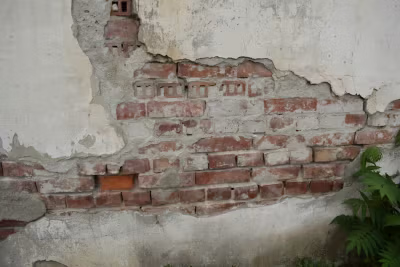Breach of Contract Elements in Colorado Construction
In Colorado construction law, contracts form the foundation of every project. They outline the rights, obligations, and expectations of all parties involved. When one party fails to uphold their end of the agreement, disputes and legal actions can follow.
Understanding the essential elements of a breach of contract claim is crucial for both contractors and clients. This guide explores the specifics of Colorado breach of contract law and provides a roadmap for navigating these complex legal situations. If you find yourself facing contract disputes, consulting with an experienced breach of contract lawyer colorado can help protect your rights and interests.
What Makes a Valid Contract?
The Foundation: Essential Contract Elements
Contracts serve as the cornerstone of business transactions. They provide a framework for parties to define their rights and obligations. In Colorado, a valid contract requires several essential elements:
Offer - One party proposes specific terms
Acceptance - The other party agrees to those terms
Consideration - Something of value is exchanged
Mutual assent - Both parties understand and agree to the contract terms
According to Colorado Civil Jury Instructions, without these elements, there can be no enforceable contract. This means no basis exists for a breach of contract claim. For construction projects specifically, understanding the nuances of different contract types is essential - learn more about understanding roofing contracts in Colorado to see how these principles apply in practice.
The Core Elements of Breach of Contract Claims
1. Proving a Breach Occurred
At the heart of every breach of contract claim lies one key assertion: one party failed to fulfill their contractual obligations. In the construction industry, breaches can take many forms:
Delays in project completion
Faulty workmanship or construction defects
Failure to follow specifications
Missing project timelines
Problems with building permits
Proving a breach typically involves demonstrating that the breaching party's actions (or lack of action) deviated from the contract terms. These issues are particularly common in construction contract disputes in Colorado, where clear documentation and expert analysis become crucial.
2. Establishing Materiality
Not all contract breaches carry the same weight. A breach is considered "material" when it:
Goes to the heart of the contract
Substantially impairs the other party's rights or benefits
As established in Doe v. Univ. of Denver, 2022 COA 57 , material breaches in construction contracts may include:
Significant deviations from architectural plans
Failure to meet safety standards
Delays that jeopardize project completion
Major construction defects that affect property value
Establishing materiality is essential when assessing the severity of the violation and determining appropriate remedies. Some builders have faced recurring issues with material breaches - for instance, KB Home construction defect issues in Colorado highlight how systemic problems can affect multiple homeowners.
3. Calculating Damages
When a breach occurs, the non-breaching party can seek compensation for losses suffered. Damages in construction cases can include:
Direct Costs:
Repair or completion expenses
Additional materials and labor
Costs to fix construction defects
Indirect Damages:
Lost profits
Diminished property value
Additional living expenses during repairs
Calculating damages often requires detailed financial analysis and may involve expert testimony to support the claims. Understanding the full scope of recoverable damages is important, including potential attorney fees in Colorado construction defect cases, which can significantly impact the overall resolution of your case.
Notice Requirements and Legal Procedures
When Notice is Required
Some contracts or applicable laws require the non-breaching party to provide formal notice of the breach. This notice serves several purposes:
Formal notification of the breach
Triggers certain contractual rights or obligations
Provides opportunity to cure the breach within a specified timeframe
Failure to provide timely notice may impact your ability to pursue remedies under the contract or at law.
Colorado's Special Notice Requirements
For construction defect claims specifically, Colorado law requires property owners to complete the Notice of Claims process under CDARA before initiating legal action against construction professionals. This is a critical step that cannot be skipped.
Common Legal Defenses
Even when a clear breach exists, the breaching party may assert various legal defenses to excuse or reduce their liability:
Impossibility of performance - Circumstances made performance impossible
Frustration of purpose - The contract's purpose was defeated by unforeseen events
Waiver - The other party waived certain contractual provisions
Consumer fraud defenses - Claims that the contract was fraudulent
Parties involved in breach of contract disputes should carefully evaluate potential defenses and consider how they may impact the case outcome.
Protecting Your Rights in Construction Contracts
Key Contract Considerations
When entering construction agreements, pay special attention to:
Essential terms and clear language
Change order procedures
Payment terms and lien rights
Warranty provisions and timelines
Taking proactive steps during the planning and construction phases can help avoid many common contract disputes. Learn more about preventing construction defects in Colorado to protect your investment from the start.
When Problems Arise
If you encounter contract disputes:
Document everything carefully
Review notice requirements in your contract
Understand your rights under Colorado law
Consider whether mediation might resolve the dispute
Consult with a qualified breach of contract lawyer colorado to evaluate your legal options
Moving Forward
Navigating breach of contract claims in the construction industry can be complex and challenging. By understanding these essential elements outlined in Colorado law, parties can better protect their rights and interests when disputes arise.
Given the intricacies involved, seeking guidance from experienced legal professionals familiar with Colorado construction law is often essential for achieving favorable outcomes. Whether you're a contractor, subcontractor, or property owner, having a solid grasp of breach of contract principles helps safeguard your investments and ensures successful project completion.
Have Questions About Contractor Disputes?
Our experienced construction defect attorneys are here to help. Schedule a free 15-minute screening call to discuss your situation.




